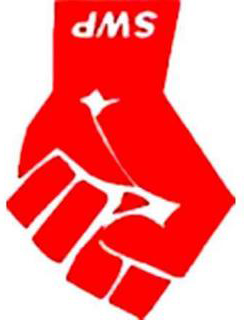 As the imperialist media and its hired lackeys foretell the end of the Bolivarian Revolution, Socialist Worker has once again entered the fray on their side against the Venezuelan people. (see www.revolutionarycommunist.org/index.php/latin-america/2832-swp-vultures-circle-bolivarian-revolution for their previous attempt in January this year)
As the imperialist media and its hired lackeys foretell the end of the Bolivarian Revolution, Socialist Worker has once again entered the fray on their side against the Venezuelan people. (see www.revolutionarycommunist.org/index.php/latin-america/2832-swp-vultures-circle-bolivarian-revolution for their previous attempt in January this year)
In his online obituary of Hugo Chavez on 6 March 2013, Mike Gonzalez gives us more of the same. Underneath its pseudo-radical language it is both stupid and dishonest. Ed Royce, senior Republican on the House Foreign Affairs Committee in Washington, was unapologetic in his lies: ‘Hugo Chavez was a tyrant who forced the people of Venezuela to live in fear.’ Gonzalez says the same in a more mealy-mouthed manner: under Chavez ‘There was no open process of decision-making…Political discussion was increasingly polarised. Public denunciations replaced debate. And power was becoming concentrated on Chavez and his immediate circle.’ Where’s the difference?
Neither Gonzalez nor the SWP has any connection with what is happening on the ground in Venezuela. For them the revolution died years ago, stifled by a newly-emergent elite, ‘a dominant bureaucracy in red caps and T-shirts.’ Never mind the open struggle against corruption that is part of the Bolivarian Revolution – Gonzalez has no room to mention that amongst all his half-truths and distortions. Determined to throw every calumny at the Bolivarian Revolution, Gonzalez says of the period post-2006 ‘The impression was of a regime without a strategic vision that created policy on the hoof. He is not aware of the intense debates within the left which Chavez encouraged about the character of Venezuela as an oil-rentier state and the distortions this has created at all levels: economic, social and political. Nor would his readership know that the outcome of this analysis was the very detailed 60-page Programa Patria, Chavez’ manifesto for the 2012 presidential election.
Former Guardian correspondent Rory Carroll is a byword for mendacity and bias in his reporting of the Bolivarian Revolution. His view is that ‘whoever succeeds Chavez, be it his chosen heir or somebody from the opposition, is going to face a really difficult time mending the economy, because the economy is now trapped in all sorts of distortions and dysfunctions.’ In Gonzalez’ hands, this becomes ‘inefficiencies, the failure to complete major projects’, essentially a story of bureaucratic incompetence. Carroll cannot resist a fling at the Cuban revolution, telling his readers that the likely Chavista candidate for the presidential election, Vice President Nicolas Maduro ‘relies on Cuba mentors, not a good augury for healthy democracy’. Nor can Gonzalez, opining that the model of the party adopted by the PSUV ‘appeared to be the Cuban Communist Party, not noted for its democratic character.’ They are the Tweedledum and Tweedledee of reaction.
Gonzalez talks shamelessly like any bourgeois journalist of the ‘power hunger of individual members of [Chavez] government’ and conflicts that ‘are almost bound to emerge’. He ends up wishing for ‘the re-emergence of a powerful mass movement still ready to struggle for “people’s power.”’ Yet that mass movement exists and is flourishing and is part and parcel of the Bolivarian Revolution. As George Ciccariello-Maher points out in a thoughtful assessment in Counterpunch (6 March),
‘More important than [the] improvement in the social welfare of the Venezuelan majority, however, are the political transformations that the Venezuelan state and people have undergone, transformations that remain far from complete. This was not a merely populist government that sought to buy votes through handouts, but a radical democratic government that sought, often despite its autocratic tendencies, to empower the people to intervene from below as the true ‘protagonists’ of history. Through communal councils, cooperatives, communes, and popular militias, the Venezuelan government has radically empowered the radical grassroots, albeit not without resistance from its own bureaucrats.’
Gonzalez cannot bring himself to even mention these developments since it would blow his standpoint – that the revolution is dead – wide open to ridicule. So he censors this information to keep his readers in ignorance. Contrary to what he says at the end, the structures to build a new and different kind of society are already in existence. Clearly he has something different in mind, and the conclusion can only be that he wants to see the present real forms of popular power destroyed. That is counter-revolution.
Robert Clough




